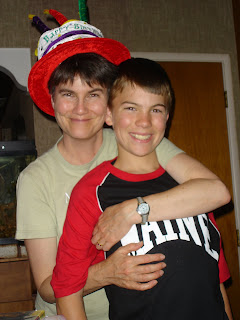 So, I can't tell if this is a real poetic genre or not. I should try writing a gutter poem to find out. In the mean time, read about my gutters on my remodel blog. I'm too tired to do much else right now.
So, I can't tell if this is a real poetic genre or not. I should try writing a gutter poem to find out. In the mean time, read about my gutters on my remodel blog. I'm too tired to do much else right now.Here's a nice photo, though, of flowers doing their best springtime thing -- growing up through the cracks.
While searching for poems about gutters and flowers in street cracks, I found a lot of interesting things by Amy Lowell. She didn't write a poem specifically about this topic (that I can find) but I did find this great poem 'Winter's Turning' that describes buildings shooting up through the streets like flowers. For some reason, some of her books are digitized in Google Books, so you can read the poem for yourself there, or here:
Winter's Turning
Snow is still on the ground,
But there is a golden brightness in the air.
Across the river,
Blue,
Blue,
Sweeping widely under the arches
Of many bridges,
Is a spire and a dome,
Clear as though ringed with ice-flakes,
Golden, and pink, and jocund.
On a near-by steeple,
A golden weather-cock flashes smartly,
His open beak "Cock-a-doodle-dooing"
Straight at the ear of Heaven.
A tall apartment house,
Crocus-colored,
Thrusts up from the street
Like a new-sprung flower.
Another street is edged and patterend
With the bloom of bricks,
Houses and houses of rose-red bricks,
Every window a-glitter.
The city is a parterre,
Blowing and glowing,
Alight with the wind,
Washed over with gold and mercury.
Let us throw up our hats,
For we are past the age of balls
And have none handy.
Let us take hold of hands,
And race along the sidewalks,
And dodge the traffic in crowded streets.
Let us whir with the golden spoke-wheels
Of the sun.
For to-morrow Winter drops into the waste-basket,
And the calendar calls it March.
Even though I found this poem while looking for flowers and streets, the image of 'we' who are 'past the age of balls' really breaks my heart. That we would be us, my love and I.











